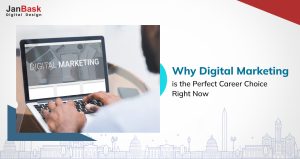
Imagine a business without customers? Hard to even conceive such thoughts would you agree. For what is a business without customers other than a self-service. Customers are what keeps the business going. They are the reason the business exists in the first place. So in this world of technology and digitization where most of your customers are on the internet. It is only logical to create a system for customers on the internet. The system would require to manage the customers online and streamline their data. This entire process of creating a structured system to manage your customers is known as Customer relationship management.
Truth be told, handling customers is not an easy task. Especially when you are eying for growth, which eventually every business does. Unable to handle existing customers and trying to acquire new ones seems like a fool’s errand. It will be hard to accept but humans are not as efficient as computers and using a program to manage large amounts of data is a rational choice.
CRM tools, when used correctly can help you in a number of ways such as
- Customer database
The best and most useful purpose of CRM tools is to help collect and store customer data in a way that it can be easily accessed for references. This helps the business keep track of its existing customers while getting new ones. A customer database is very important because it helps the organization to manage the clients in a professional manner.
- Leads generation
Growth is one of the main objectives of every business organization and it is not possible without new clients. Leads generation is an integral part of acquiring new clients to do business. It helps the business get in touch with people who are interested in your business and would potentially become your customers.
- Sets up a timeline
CRM tools help your business streamline your tasks and create priorities. It helps create objectives and goals for different departments, such as sales and marketing, to work more effectively.
- Direction
CRM tools give direction to all the efforts that the organization is putting in. it helps the management see the bigger picture and focus on the long term growth of the business by managing the short term objectives with more fluidity.
The need for CRM tools is evident in the modern scenario. With most of the customers spending their time online. It only makes sense to integrate a system that can manage the customers where they like to do business.
Benefits if a good CRM tool
CRM is an essential tool for current market conditions. A digital support system to manage customers is very essential. Here are some simple benefits a CRM tool brings to the table. These are some of the known benefits of CRM.
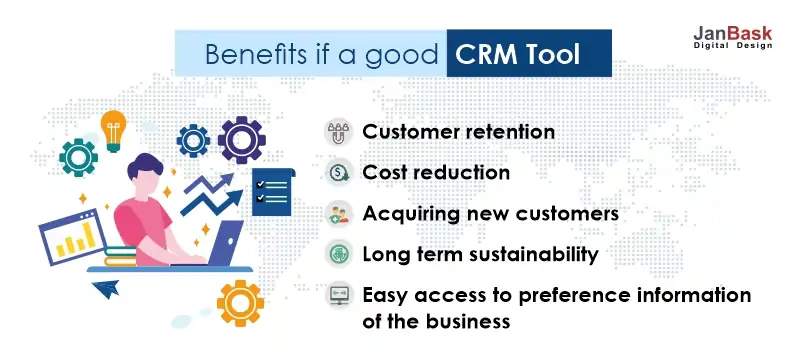
- Customer retention
If you have a large customer base or even more than a thousand customers. Chances are you will skip out on some of them, making them feel left out. All businesses plan for the future and how to acquire new clients. However, If not enough attention is given to the customers, they will most probably choose some other service over you.
CRM is a comprehensive tool that helps the organization to manage all its customers new and old. It helps the business to keep track of the customer’s needs and improves the customer experience with the firm. The overall efforts that the organization puts in the customer increases the satisfaction levels, making the customers return every time.
- Cost reduction
Apart from the obvious cost that is reduced in labor efforts and paperwork to manage customers. CRM tools help the organization streamline all its efforts to achieve the final result. It helps the optimization of resources and cutting costs on less useful resources.
Earlier companies had to create a separate department for customer relationship management and hire individuals for the work. But now the tools can help the organization to replace the entire department reducing the cost significantly.
- Acquiring new customers
One of the primary functions of CRM tools is to generate leads. It helps the organization find individuals who are most likely to be interested in the product. This helps the business find people who are most likely to convert into customers. The potential of converting the person into the customer depends on the information that is provided to the marketing team. The better and more refined the information the higher the success rate. It helps the organization optimize the resources spent on acquiring new customers. As approaching probable customers who are interested or need the product is more beneficial than approaching those people who have nothing to do with the product or are not even looking for it. This helps in optimizing the efforts of the marketing department of the organization.
- Long term sustainability
Whenever a business is started. It is believed that it is perpetual regardless of who comes and goes in the management. It is one of the primary objectives of a business to keep going for as long as possible. All organizations function on output. If the output is not greater than the input, the company is not likely to survive very long. The management has to make rational decisions that help them improve output and increase efficiency. Using a CRM tool to manage customers can be a very efficient method to improve customer satisfaction. The better the experience of the customer with the organization the higher the chance that they will return and do business again. Customer satisfaction and retention are the two main pillars of the foundation for an organization’s long term sustainability.
CRM helps improve these elements of the business and make the functioning of the business better.
- Easy access to preference information of the business
Information and data is a currency in the current market scenario. The market is a very dynamic place and going in with knowing how it works is foolish. Trying to run a business without being aware of the consequences is like shooting in the dark and hoping to hit the bullseye. Success is a very rare treasure that only a few organizations every find.
Well evaluated data is one of the aspects that can help the organization to move toward the direction. It helps the business to plan and make educated decisions. The knowledge of what is going on in the market and what direction to take in order to be successful can mean profits and long term success for the business.
How to choose the best CRM tool for your business?
Like any other tool, there are a lot of CRM options these days. But not all are value for money or even worth it. The purpose of CRM is to adapt itself to the needs of the organization. So here are some tips that can help you decide which tool would be best suited for your needs.
- Functions
A tool is as useful as the person wielding, is not a proverb necessarily true for digital tools. With most applications, almost all the work is automated and the user has to do nothing but give the command. However, it is important that the tools have functions that are needed from them. The need for CRM in an organization requires the tool to help the business keep track of the customers and generate leads. But these are just the basic functions that are required. The organization might have different needs and require the tool to do more than the basic functions such as creating a chronological log or a report of the management to analyze and take action on or the security features. Depending on what you require the tool to do you must compare and consider all the options and alternatives available in the market.
- Cost
CRM is a very important tool and is not free. It can help you get more customers and handle the existing ones, meaning improving the cash inflow for the business. So it is more of an investment than a cost.
While all CRM tools will help you perform the basic requirements easily. Additional features will cost you extra, like in any other application. These features are what sets the alternative tools apart. So while many features are useful to the business not all of them are necessary for your business. You need to carefully evaluate and decide which features you want and which features you want to pay for. Regardless to say, application development is also a business and as a business organization, they will try to sell you more of their products. The sales pitch can make you feel the requirement for the feature but you have to decide if the feature is something you absolutely need.
- Reviews
The features and cost analysis should narrow down the options for you. But very often there are options which are indistinguishable from each other due to their similarities. So how do you decide when you are offered two identical choices?
You add more dimensions to the evaluation. One of the best-suited one for this situation would be customer reviews for the product. There are many reviews or rating websites out there that can help you understand how real users of the product feel about the tool. Reviews are a testimonial for the tool and allow you to understand how different it is from what the company is promising.
- Trial and error
The tool may not be the same as described by the organization obviously. But different users may have different experiences using the tool and there are some organizations that pay people to write fake reviews.
So who can you trust?
All the applications companies offer a trial period for their product. It is a way to give the look and feel of the application. The trial is a demo for the features and services the tool can provide and how you can use it for your business. It can help you understand the basic functionality of the tool and help you get a grip on how to use it. If you find it hard to choose between many alternatives, just try them out and decide which one suits your needs best.
CRM tools are a basic need for business these days. Not using one can be less productive but using the wrong tool just means self-destruction for the organization. You need to evaluate the options and make a rational decision for better output.
In the end
Times are changing and we have more applications in the market than needed. In fact, there is a tool for almost everything you can probably think of. CRM tools are one of them. These tools replace the human effort it takes to manage a large amount of data and is more accurate than a human worker. These tools are less likely to make a mistake and are much faster. They do not require a high level of computer knowledge and can be operated by anyone. All the user has to do is give the command and the work is done in no time.
However, having a tool does not necessarily mean success for the organization. Almost all the organizations out there are using CRM but not all are successful. Inculcating the tool into the infrastructure or the mainframe of the business is not a guarantee of success. The tool can only provide you the information and do your bidding by following the commands. However, you will have to process the information correctly and give the right command for it to work properly. Tools and applications do eliminate the human element from the process but they do require humans to initiate and evaluate the information. These tools are like a car that can take you from point A to B. But which road to take is the decision of the driver. To evaluate the needs of the organization and put them in practical prospect. SO that your objectives for the tool become achievable.


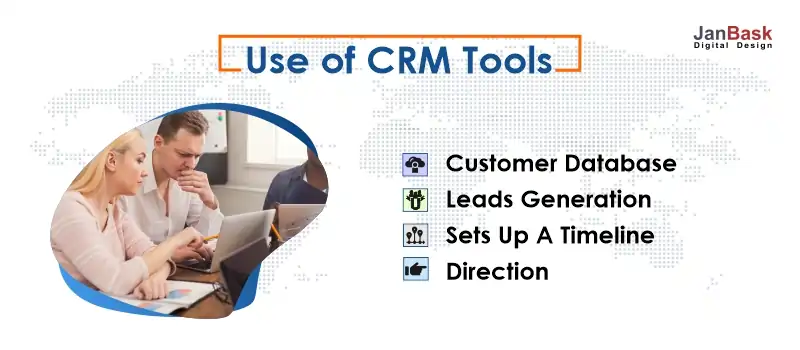
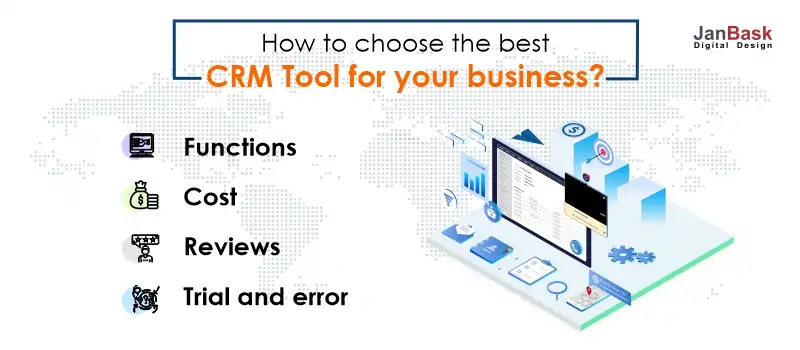

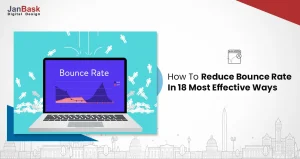
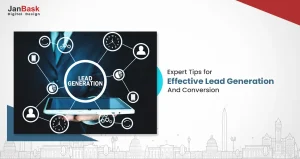
s
such a great content and gained lot of knowledge about CRM